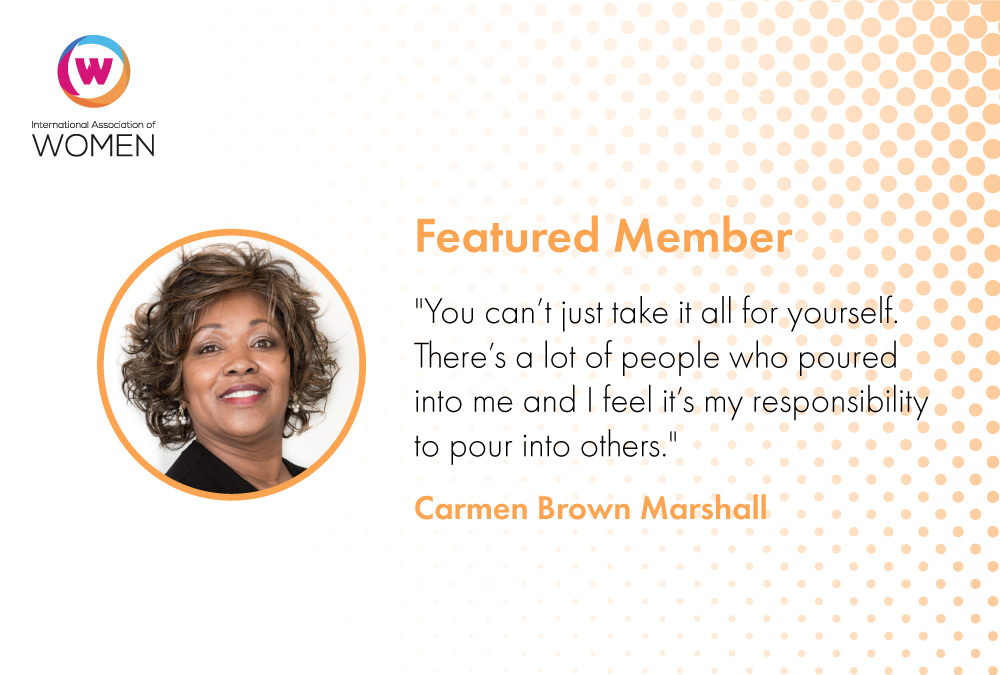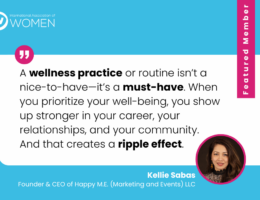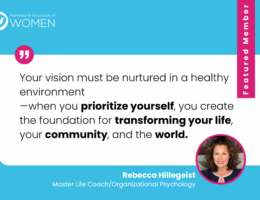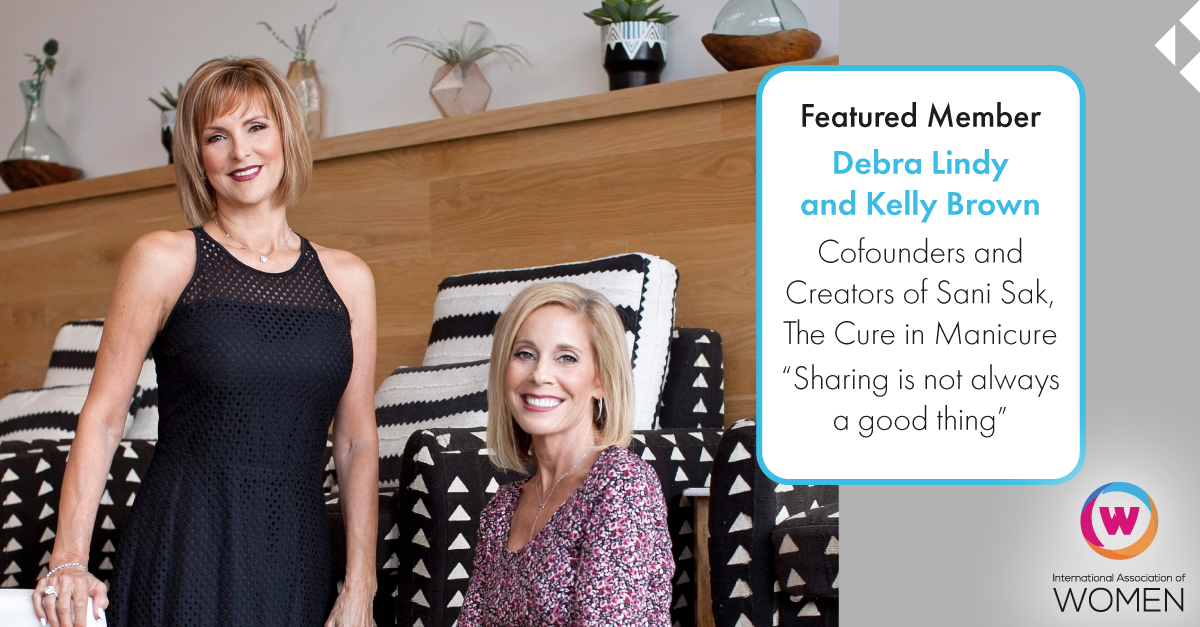Seventeen years ago, Carmen Brown Marshall was diagnosed with breast cancer after discovering abnormalities during a self-exam. After chemotherapy, surgery, radiation, and adjuvant treatments, she’s cancer-free, with an ignited passion for women’s wellness. “Every woman should know her body and every woman should know her health,” says Brown Marshall. She attributes her positive health outcomes to early detection, and with one in eight women being diagnosed with breast cancer in their lifetimes, she wants to help other women navigate this challenge. “When people think of breast cancer, they think negatively. They think you’re going to die and they get fearful,” says Brown Marshall. “I want people to think of it as simple as a cold. You have to address it and you will get over it. Whether it’s breast cancer or the pandemic, it’s just a moment in time.”
As a scientist, Brown Marshall is uniquely positioned for this fight. Whether it was during her undergraduate research career or her time working as a lab technician preparing tissue samples for medical pathologists, health and wellness have always been at the forefront. “Women’s health is not just an October event. It’s a 365 day a year type of thing,” says Brown Marshall. Her professional background gives her insight into the way our bodies work that most women don’t have. She hopes to bridge the gap through her book Looking Well Beyond Breast Cancer, her YouTube channel, and her various speaking engagements. Her messaging is clear: early detection saves lives. She stresses the importance of getting your yearly mammogram and performing self-exams. She also hopes to dismantle misconceptions about breast cancer, such as it being a disease that only affects older women.
Although Brown Marshall is living out her purpose now, the path hasn’t always been so clear. There were many times in her career when she’s had to pivot. After undergrad, she planned to go to medical school in hopes of becoming a doctor, but when the only medical school she was accepted by was the University of Guadalajara, she switched course to medical research, not wanting to leave. After 12 years as a researcher, she left the lab to work in medical technology sales, and when she was fired from a job because of racial bias in the workplace, she had to pivot once more. Despite being one of few African American women in such a specialized field, Brown Marshall has found success. “You cannot allow your attitude, regardless of your environment, to tarnish your perspective,” she says while recounting the difficulty of being an “only” in the workplace.
She attributes her ability to bounce back to belonging to professional organizations, like IAW, where she can leverage the support system. For Brown Marshall, the biggest reward is overcoming challenges and being able to contribute and give back. “You can’t just take it all for yourself. There’s a lot of people who poured into me and I feel it’s my responsibility to pour into others,” she says.
As for the future, Brown Marshall wants to continue the work she’s doing now on educating women, but on a bigger stage. “I have a lot to give and before I take my last breath I’m going to make sure I give it.”





Thank you Ms. Marshall as a breast cancer survivor myself I appreciate you sharing your story. I was diagnosed when I went in for my first mammogram at age 40. It’s a difficult journey some days are better than others, but my support groups which I began to participate a year after I completed my treatments have been helpful. However many of my friends in the support groups have been diagnosed before the age 40, and usually at advance stage. Thank you again by the way.